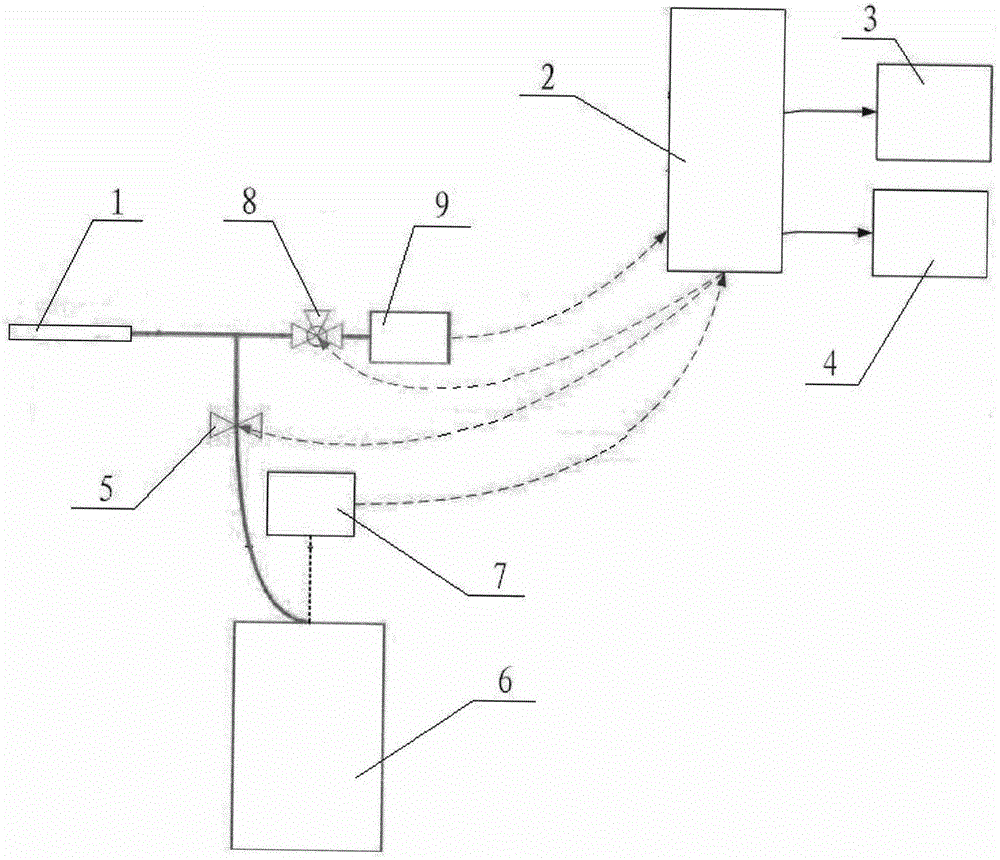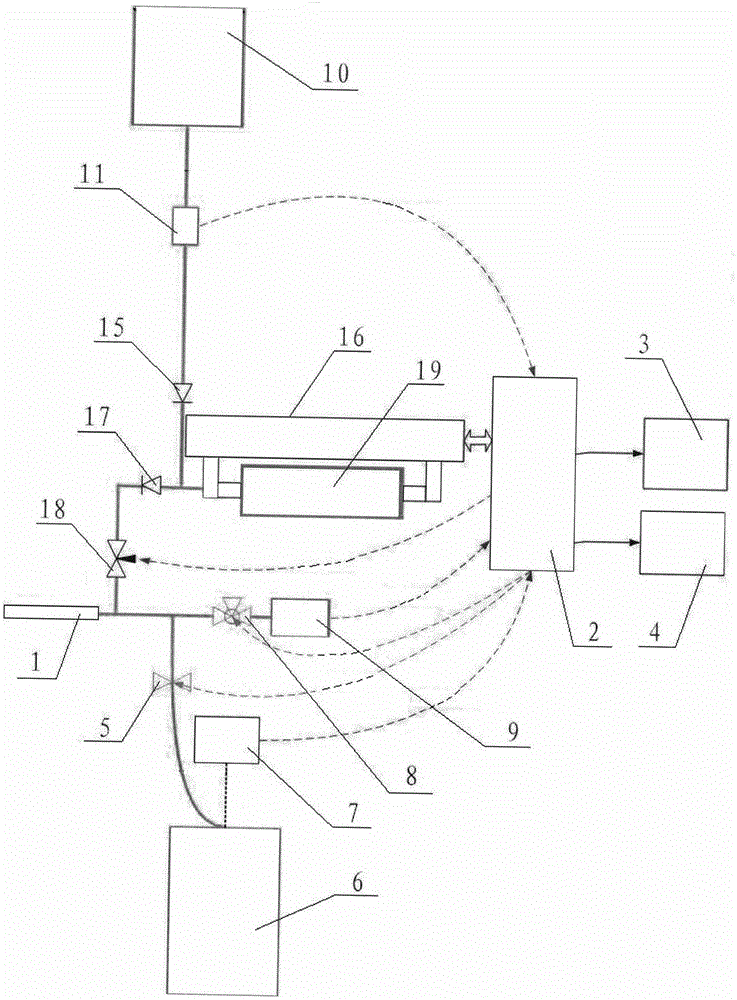Method and device for reflecting intra-abdominal pressure by measuring pressure in bladder
A measuring device, intra-abdominal pressure technology, applied in the directions of diagnostic recording/measurement, medical science, sensors, etc., can solve the problems of air leakage, easy air intake, etc., to achieve convenient operation, reduce patient pain and infection risk, and simple structure. Effect
- Summary
- Abstract
- Description
- Claims
- Application Information
AI Technical Summary
Problems solved by technology
Method used
Image
Examples
Embodiment 1
[0025] Embodiment 1, the method for reflecting the intra-abdominal pressure by intravesical pressure measurement comprises the following steps: 1) emptying the liquid in the bladder; 2) measuring the amount of urine produced in the bladder per unit time to obtain the speed of urine production; 3) Calculate the time required for the amount of urine in the bladder to accumulate to 50 ml, and start timing; 4) After the timing is completed, measure the bladder pressure and convert it into intra-abdominal pressure; 5) Repeat the above steps to complete the periodic measurement;
[0026] Comparing the bladder pressure or intra-abdominal pressure obtained in step 4) with the normal value, judging whether it has increased or decreased, and sending an alarm signal when it is judged to be yes;
[0027] Such as figure 1 As shown, the device for reflecting intra-abdominal pressure through intravesical pressure measurement includes urinary catheter 1, urine volume measuring device, bladder...
Embodiment 2
[0029] Embodiment 2, when the patient can no longer produce urine, or the amount of urine produced is too small to meet the measurement needs, an active infusion device is used, such as figure 2 As shown, the rest are the same as in Embodiment 1, and also include an active infusion device, which communicates with the urinary catheter 1; the active infusion device includes a fluid storage bag 10, a dropper 11, a first peristaltic pump 12, and a fluid storage tube communicated in sequence. 13. The second peristaltic pump 14, the second peristaltic pump 14 communicates with the urinary catheter 1, the liquid storage bag 10 and the liquid storage tube 13 are equipped with liquid level sensors, the first peristaltic pump 12, the second peristaltic pump 14, the liquid level The sensors are all electrically connected to the main control board 2, and the capacity of the liquid storage tube 13 is 50 milliliters.
[0030]The specific use process is that after the liquid in the bladder ...
Embodiment 3
[0031] Embodiment 3, when the patient can no longer produce urine, or the amount of urine produced is too small to meet the measurement needs, an active infusion device is used, such as image 3 As shown, the rest are the same as in Embodiment 1, and also include an active infusion device, which communicates with the urinary catheter 1; the active infusion device includes a liquid storage bag 10, a dropper 11, a first check valve 15, and a syringe that are pushed in sequence. And the detection device 16, the second check valve 17, the electromagnetic shut-off valve 18, the liquid storage bag 10 is provided with a liquid level sensor, the syringe push and detection device 16, the electromagnetic shut-off valve 18, and the liquid level sensor are all electrically connected to the main control board 2 , The syringe pushing and detecting device 16 includes an injection syringe 19, and the volume of the injection syringe 19 is 50 milliliters.
[0032] The specific implementation pr...
PUM
 Login to View More
Login to View More Abstract
Description
Claims
Application Information
 Login to View More
Login to View More - Generate Ideas
- Intellectual Property
- Life Sciences
- Materials
- Tech Scout
- Unparalleled Data Quality
- Higher Quality Content
- 60% Fewer Hallucinations
Browse by: Latest US Patents, China's latest patents, Technical Efficacy Thesaurus, Application Domain, Technology Topic, Popular Technical Reports.
© 2025 PatSnap. All rights reserved.Legal|Privacy policy|Modern Slavery Act Transparency Statement|Sitemap|About US| Contact US: help@patsnap.com



